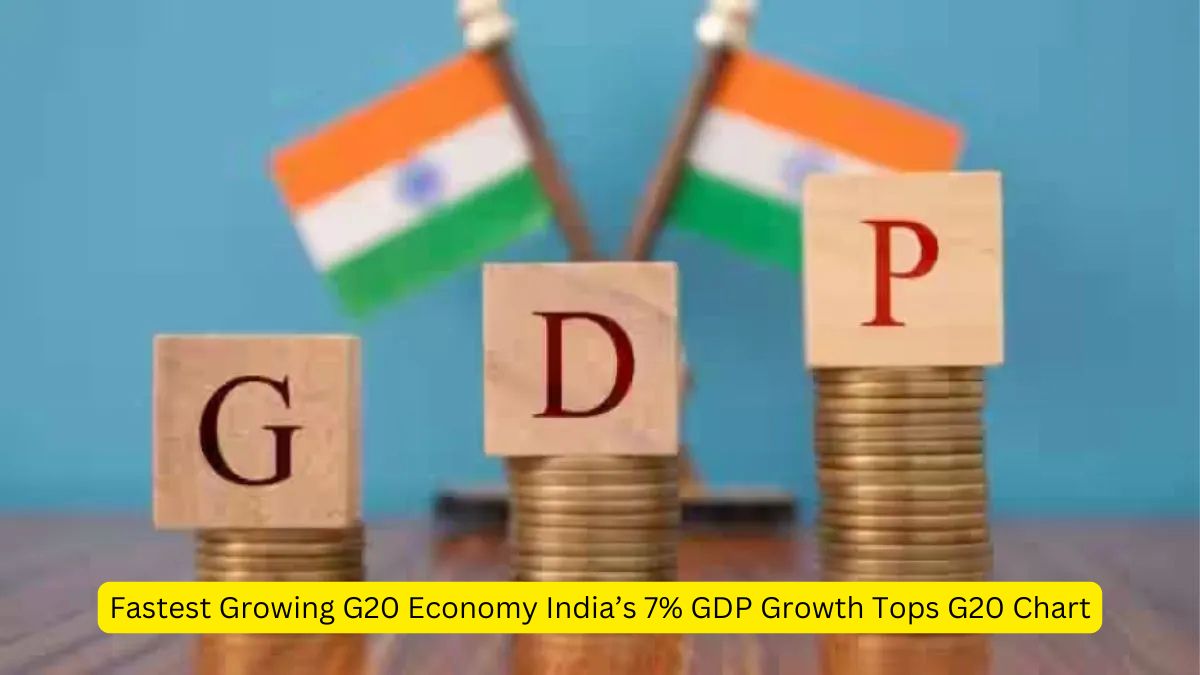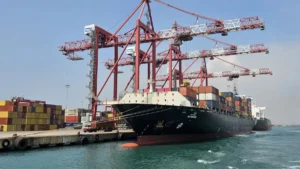India has emerged as the fastest-growing economy among G20 countries, with a projected GDP growth rate of 7% for 2024. This remarkable achievement highlights India’s economic resilience and potential amidst global challenges. The rankings, released during the ongoing G20 summit in Rio de Janeiro, Brazil, underscore the disparity in growth rates among G20 nations and set the stage for discussions on sustainable development, global governance reforms, and strategies to combat poverty, hunger, and inequality.
Key Highlights
India’s Economic Leadership
- 7% GDP Growth: India tops the G20 growth chart with a projected rate of 7% for 2024.
- Robust Economy: Reflects India’s resilience and rapid economic development amidst global economic uncertainties.
Top Growth Rankings in G20
- India: 7% growth, leading the G20.
- Indonesia: Second spot with 5%.
- China: Ranked third with a growth rate of 4.8%.
- Russia: Fourth at 3.6%.
- Brazil: Host nation at fifth with 3%.
Performance of Other Regions and Countries
- African Region: Projected growth of 3%.
- USA: Seventh spot with 2.8% growth.
- Western Powers:
- Canada: 1.3%.
- Australia: 1.2%.
- France, EU, UK: 1.1%.
- Italy: 0.7%.
- Japan: 0.3%.
- Germany: 0% (worst performer among advanced economies).
G20 Summit 2024: Key Themes
- Venue: Rio de Janeiro, Brazil (November 18-19, 2024).
Focus Areas
- Fighting hunger, poverty, and inequality.
- Advancing sustainable development.
- Reforms in global governance systems.
- Participants: All 19 G20 member countries and the European Union.
Additional Insights
- Prime Minister Narendra Modi’s Participation: Received a warm welcome in Brazil, emphasizing India’s proactive role in the summit.
- Global Context: Highlights the economic diversity within G20 and the need for collaborative efforts to address shared challenges.
About G-20 Summit
Origin (1999)
- Established after the 1997-98 Asian Financial Crisis involving East and Southeast Asian economies.
- Initially served as a platform for Finance Ministers and Central Bank Governors of major industrialized and developing countries to discuss global economic and financial stability.
Elevation to Leaders’ Level (2008)
- Upgraded during the 2008 global financial crisis to include Heads of State or Government, enabling high-level crisis coordination.
2009 Declaration
- Declared the “premier forum for international economic cooperation.”
- Leaders have since met annually, making the G20 a leading platform for global economic dialogue.
G20 Membership and Representation
Members
- 19 Countries: Argentina, Australia, Brazil, Canada, China, France, Germany, India, Indonesia, Italy, Japan, South Korea, Mexico, Russia, Saudi Arabia, South Africa, Turkey, the United Kingdom, and the United States.
- European Union (EU): Included as the 20th member.
- The African Union was also included in the G20 New Delhi summit.
| Summary/Static | Details |
| Why in the news? | India has emerged as the fastest-growing economy among G20 countries, with a projected GDP growth rate of 7% for 2024. |
| Top G20 Growth Rankings | 1. India (7%)
2. Indonesia (5%) 3. China (4.8%) 4. Russia (3.6%) 5. Brazil (3%) |
| Performance of Other Regions | – African Region: 3%
– USA: 2.8% Western Economies’ Growth – Canada: 1.3% – Australia: 1.2% – France, EU, UK: 1.1% – Italy: 0.7% – Japan: 0.3% |
| Worst Performer | Germany with 0% GDP growth projected. |
| 2024 G20 Summit | Venue: Rio de Janeiro, Brazil (November 18-19, 2024). |
| Summit Focus Areas | – Fighting hunger, poverty, and inequality.
– Advancing sustainable development. – Global governance reforms. |
| About G20 | |
| Origin | Founded in 1999 after the 1997-98 Asian Financial Crisis. |
| Initial Role | Forum for Finance Ministers and Central Bank Governors to discuss global economic stability. |
| Significance | Represents 85% of global GDP, 75% of international trade, and two-thirds of the world population. |
| Members | 19 countries (Argentina, Australia, Brazil, Canada, China, France, Germany, India, Indonesia, Italy, Japan, South Korea, Mexico, Russia, Saudi Arabia, South Africa, Turkey, UK, USA) and the European Union. |



 Forex Reserves of India Hit Record High ...
Forex Reserves of India Hit Record High ...
 India Revises Base Year of Merchandise T...
India Revises Base Year of Merchandise T...
 India’s Core Sector Growth Slows to 4% i...
India’s Core Sector Growth Slows to 4% i...








